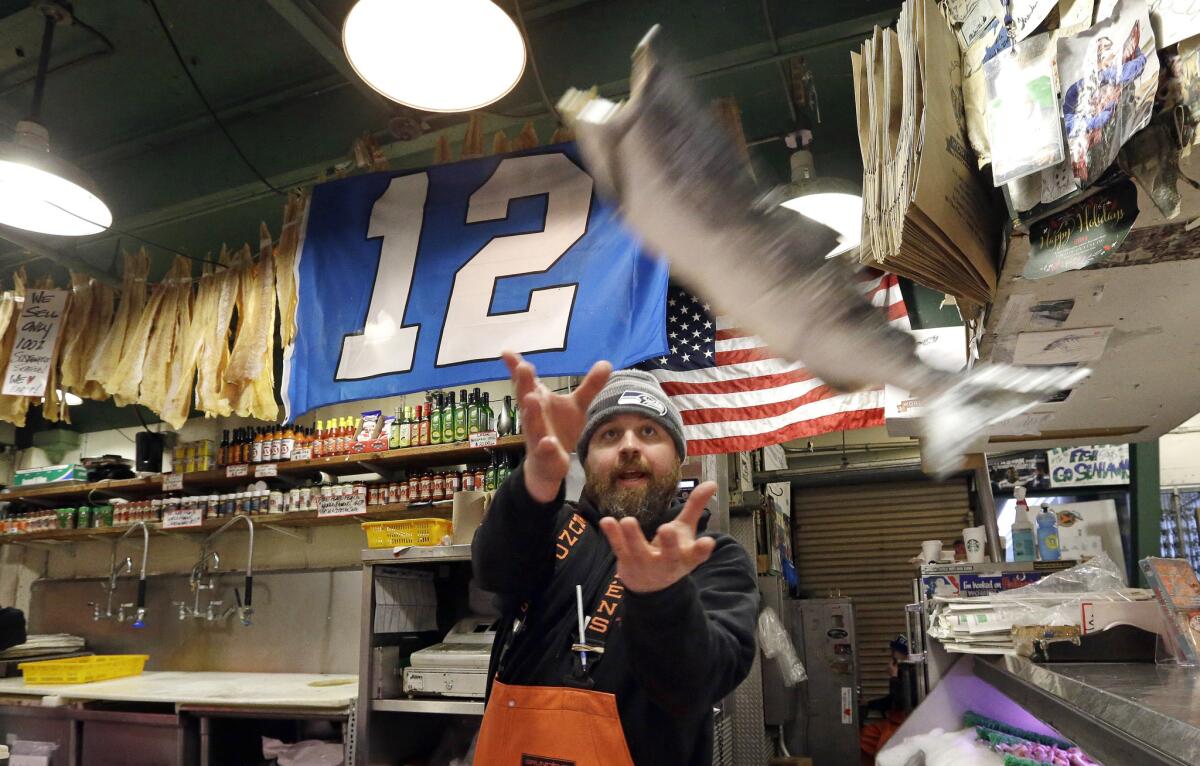No, the minimum wage isn’t forcing these Seattle restaurants to close

- Share via
Anti-minimum wage conservatives are in full gloat over a recent report in a Seattle magazine that lots of Seattle restaurants have closed lately or are due to close in the next weeks or months.
The conservatives gleefully associate this phenomenon with the coming increase in the city’s minimum wage, which kicks in April 1 with a rise to $11 an hour from $9.32. (Employers whose workers earn tips get a break--they can pay $10 if the workers make up at least another dollar from their tips.) The wage hike builds over time; for employers with fewer than 500 workers, which would probably cover every full-service Seattle restaurant, the ultimate increase to $16.49--or $15 for tip earners--doesn’t happen until 2021.
David Watkins of the Lawyers, Guns & Money blog points out that the minimum wage opponents are declaring “We told you so” way too soon. In fact, the article that inspired the gloating doesn’t ascribe any of the closings to the minimum wage increase and, indeed, points to different reasons in every case. As for the idea that Seattle restaurants are “closing in record number” (sic), as the Tea Party News Network proclaims, it’s just not so.
Here’s the rundown. Of the seven restaurants specifically mentioned in Seattle Magazine’s March 4 post, one was reported by its owner to be located in the wrong neighborhood for its particular mix of bar space and atmosphere. Another is being offloaded by an owner who has three other restaurants in the city and is opening two more. (A neighboring restaurant is expanding into its space.) A third turned out to be too big for the clientele at its location. Three aren’t closing at all, but are getting new chefs because their old boss is moving to Spain to join his partner.
How many owners cited the minimum wage as a factor in their actions? None.
There are some mild intimations in the article that Seattle restaurateurs are thinking about how to accommodate the wage increase. These come mostly from an industry lobbyist, although local reporters have been collecting expressions of concern from restaurant owners about how the wage increase will thin their profit margins.
The Seattle Magazine piece observes, on the other hand, that the market in new restaurant openings is very active. And Watkins points out that Seattle remains one of the most vibrant and competitive restaurant cities in the country; Jed Kolko of Trulia calculates that it boasts the third highest concentration of eateries in the country, at 24.9 per 10,000 households, behind only San Francisco (by a huge margin) and the New York metropolitan area.
That doesn’t mean that the minimum wage increase won’t make the Seattle restaurant business harder. But so far it doesn’t seem to have made a dent in diners’ choices.
Keep up to date with the Economy Hub. Follow @hiltzikm on Twitter, see our Facebook page, or email [email protected].
More to Read
Inside the business of entertainment
The Wide Shot brings you news, analysis and insights on everything from streaming wars to production — and what it all means for the future.
You may occasionally receive promotional content from the Los Angeles Times.











